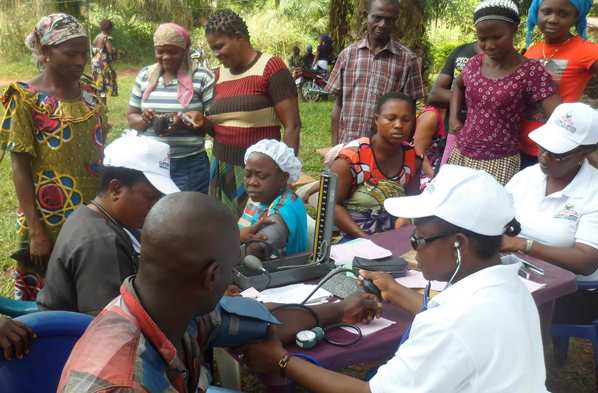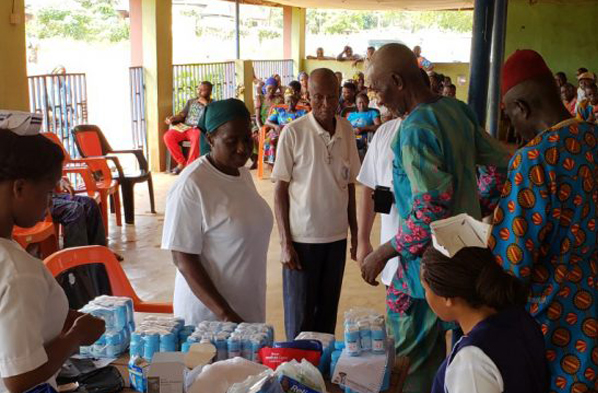Hypertension
What Is Hypertension?
Hypertension is a chronic condition, where one’s blood pressure is elevated.
According to the World Health Organization (WHO) hypertension is estimated to effect 46% of adults in Africa, compared to 35% of adults in the Americas.
What Is Blood Pressure?
Blood pressure is a measurement of the force of the blood on the blood vessels. The heart pumps blood around the body with each beat. When the heart beats, it is squeezing and relaxing, forcing blood out of the heart and around the body through blood vessels. Blood pressure is measured as two numbers, the amount of pressure created when the heart is squeezing and when the heart is relaxed.
Why Is A High Blood Pressure Bad?
Elevated blood pressure creates too much force on the blood vessels. Overtime this can cause damage.
What Happens If High Blood Pressure Is Not Treated?
When high blood pressure is left untreated, it can lead to cardiovascular disease, heart attack, stroke, kidney failure, blindness, and death. According to the WHO hypertension is estimated to cause 7.5 million deaths annually.

How Often Should Blood Pressure Be Tested?
If you have a normal blood pressure, your doctor may tell you to test annually. If you have hypertension your doctor will want to monitor your blood pressure more frequently. Your doctor will tell you how often you need to have your blood pressure checked; daily, weekly, or monthly. It is important to listen to your doctor so your blood pressure can be monitored to ensure your health.

How Is Blood Pressure Tested?
Blood pressure is tested using a blood pressure cuff. The cuff is placed on the arm and inflated. This is done with an automatic machine or manually by a doctor or nurse. Once the cuff is inflated, it will slowly deflate, then the doctor or nurse will read the result.
Anti-Hypertensive Medications
Your physician may prescribe medication to help control your blood pressure. It is important to follow your doctor’s instruction when taking these medications.
